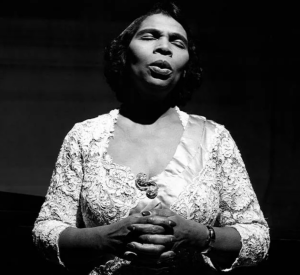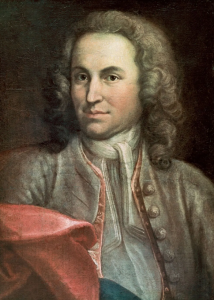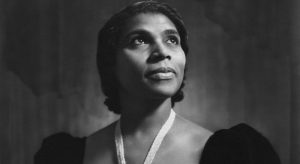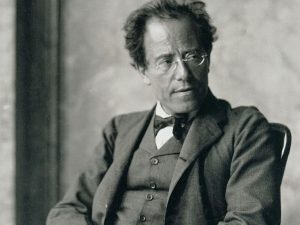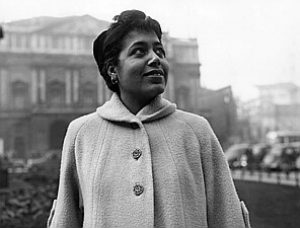Podcast: Play in new window | Download (Duration: 1:39:01 — 114.9MB) | Embed
Subscribe: Spotify | TuneIn | RSS | More
Over the course of the past year, I have done a number of episodes on contraltos singing a wide range of material. Toward the end of last year, I did a program on Bach contraltos, which featured just a few of the best (and my favorite) contraltos in this genre. At the time, I had an overflowing cornucopia of material and today I have reorganized and expanded that material to bring you a set of Bach arias particularly appropriate for the Lenten Season. And thus I present to you today, arias from the Passions sung by Julia Hamari, Marian Anderson (pictured), and Friedel Beckmann, but also cantata arias by such eminent contraltos as Kathleen Ferrier, Lorraine Hunt Lieberson, Carol Brice, Jennie Tourel, Carolyn Watkinson, Ria Bollen, Brigitte Fassbaender, Norma Lerer, Alfreda Hodgson, Birgit Finnilä, Elena Obraztsova (yes, you read correctly!), Anna Reynolds, and Else Brems. Non-contralto guest appearances include Arleen Augér, Peter Schreier, and Aldo Baldin. If you are not a Christian, fear not, for behold, there is much in Bach’s music that draws the listener in on any number of levels, not just (or even primarily) a theological one.
Countermelody is a podcast devoted to the glory and the power of the human voice raised in song. Singer and vocal aficionado Daniel Gundlach explores great singers of the past and present focusing in particular on those who are less well-remembered today than they should be. Daniel’s lifetime in music as a professional countertenor, pianist, vocal coach, voice teacher, and journalist yields an exciting array of anecdotes, impressions, and “inside stories.” At Countermelody’s core is the celebration of great singers of all stripes, their instruments, and the connection they make to the words they sing. By clicking on the following link (https://linktr.ee/CountermelodyPodcast) you can find the dedicated Countermelody website which contains additional content including artist photos and episode setlists. The link will also take you to Countermelody’s Patreon page, where you can pledge your monthly or yearly support at whatever level you can afford.
